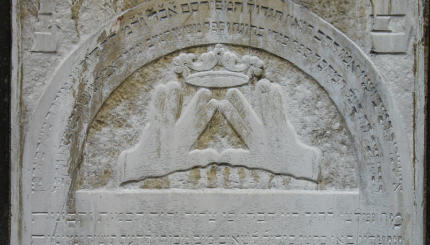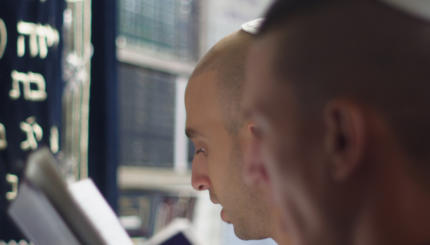Reprinted with permission from Pray Tell: A Hadassah Guide to Jewish Prayer, published by Jewish Lights.
Prayer should be an elevating experience. Although prayer often concerns basic human needs, prayer allows us to reach out toward the highest, the infinite, the Creator of the universe. We dare to confront our Creator, though we are mortal creatures of flesh and blood.
Remember that the words are only a way. The medieval philosopher Bahya Ibn Pakuda wrote that one who is “employed in those duties in which both the heart and the body are involved, such as prayer and praising God, blessed be He, should empty himself of all matters appertaining to this world or the next and should empty his heart of every distracting thought, after first cleansing himself” (Duties of the Heart 8:3). According to Bahya, we also should keep our distance from unpleasant smells and other unpleasantness during prayer. We should consider to whom we direct our prayers; we should ponder the words of the prayers and their meaning.
 The words of prayers are like the husk covering grain [wrote Bahya], and reflection on their meaning is like the kernel. Prayer itself is like the body, and reflection on its meaning is like the spirit. If we merely utter the words of prayers while thinking about matters other than prayer, it is like a body without a spirit, a husk without a kernel; the body is present but the heart is absent. Bahya wrote that, of such people, Scripture says: “This people has drawn near to me with its mouth, and honors Me with its lips, but has kept its heart far from Me” (Isaiah 29:13).
The words of prayers are like the husk covering grain [wrote Bahya], and reflection on their meaning is like the kernel. Prayer itself is like the body, and reflection on its meaning is like the spirit. If we merely utter the words of prayers while thinking about matters other than prayer, it is like a body without a spirit, a husk without a kernel; the body is present but the heart is absent. Bahya wrote that, of such people, Scripture says: “This people has drawn near to me with its mouth, and honors Me with its lips, but has kept its heart far from Me” (Isaiah 29:13).
In the words of Maimonides, if you pray merely by moving your lips while facing a wall, and at the same time think about your business, your buying and selling, or if you read the Torah with your tongue while your heart is set on the building of your house and does not consider what you read; and similarly in all cases in which you perform a commandment merely with your limbs — as if you were digging a hole in the ground or hewing wood in the forest –without reflecting either on the meaning of that action or on the One from whom the commandment proceeds or on the purpose of the action, you should not think that you have achieved the end.
Rather, Maimonides stated (Guide of the Perplexed III: 51), you will then be similar to those of whom it is said, “You (God) are present in their mouths and far from their thoughts” (Jeremiah 12:2).
Torah
Pronunced: TORE-uh, Origin: Hebrew, the Five Books of Moses.


